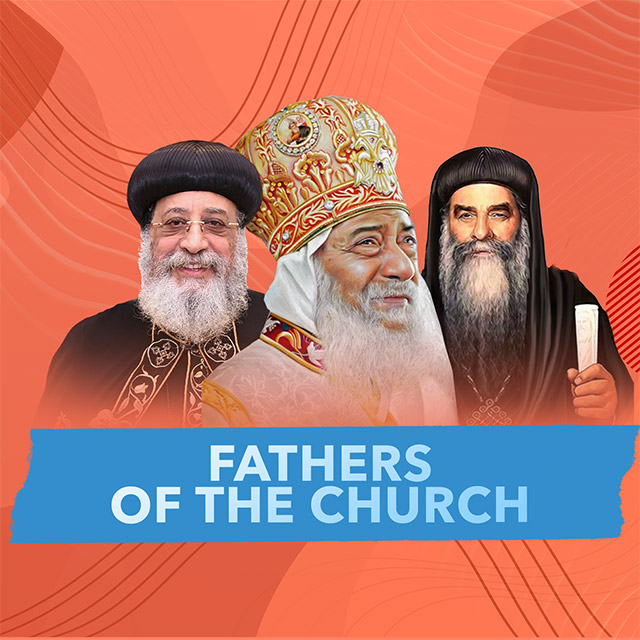Why do we beatify the Virgin Mary? Is it because of her virginity or her faith? I read from one of the blameless that we should not beatify the Virgin Mary as a mother or as a virgin! That physical motherhood is not what the Lord honors! That God does not see spiritual significance in natural family relationships or physical kinship and that her beatification is solely due to her faith. What is the Orthodox understanding of all these matters? We beatify the Virgin Mary for all these reasons: her motherhood of the Lord, her virginity, her faith, and her holy life. All these together, especially being the Mother of God, make her unique among all women in the world. As we say to her in the hymn, “Many women have received honors, but none like you” (Proverbs 31:29). Indeed, Saint Elizabeth said to her, “Blessed is she who believed that there would be a fulfillment of what was spoken to her by the Lord” (Luke 1:45). However, what she believed would be fulfilled was that she would become the Mother of God. Elizabeth did not limit her beatification to this faith alone; she also said before this, “And why is this granted to me that the mother of my Lord should come to me?” (Luke 1:43). Elizabeth further blessed her saying, “Blessed are you among women, and blessed is the fruit of your womb” (Luke 1:42). All this emphasizes her being the Mother of God. It is not correct to take one phrase from Saint Elizabeth’s beatification of Saint Mary and ignore the rest of the verses that provide a complete picture of the “biblical truth.” We must say that Saint Mary being a virgin and the Mother of God are two attributes directly related to the issue of salvation. Salvation could not have happened without the incarnation, and the incarnation means that the Lord was born of a woman, a human with our same nature, enabling Him to represent humanity. For this reason, Christ insisted on calling Himself the “Son of Man,” as it is through this title that He saved humanity, and He could not have become the Son of Man without being born of Mary. Thus, the title “Mother of God” for the Virgin Mary is directly related to redemption and salvation that could not happen without the incarnation. Does the virginity of Mary also relate to the issue of salvation? Certainly, her virginity is connected to the topic of salvation. Christ could not have been born as a result of a natural human seed from a man to a woman and become an ordinary human! He had to be born from a virgin in a supernatural way, by the Holy Spirit, having one Father who is God. Thus, He could not be born with original sin, and being holy, He could redeem sinners. Therefore, why should we not beatify the Virgin Mary as a virgin and the Mother of God, especially since these two aspects are essential for our salvation? What benefit does anyone, regardless of their Christian denomination, gain from not beatifying the Virgin Mary as the Mother of God and as a virgin? Saint Paul also honored virginity, saying it is better (1 Corinthians 7). When the Virgin Mary said, “For behold, henceforth all generations will call me blessed,” she did not mean that her faith was the only reason for the beatification. Instead, she said, “For He who is mighty has done great things for me, and holy is His name” (Luke 1:48-49). Certainly, these great things include her ability to give birth while remaining a virgin and to give birth to the Lord Himself. What greater things than these? Faith can be present in any woman, but not every woman can give birth as a virgin and give birth to the Lord Himself! Therefore, limiting the beatification of the Virgin Mary to her faith alone makes her like other women, without distinction, which is a known Protestant approach. As for the notion that God does not see spiritual significance in natural family relationships or physical kinship, this is not a sound biblical teaching. It is enough that God placed the commandment to honor parents at the top of the second tablet of the Ten Commandments, dealing with relationships with people (Deuteronomy 5:16). Saint Paul emphasized the commandment to “Honor your father and mother,” calling it the “first commandment with a promise” (Ephesians 6:2). In the Old Testament, the penalty for cursing parents was death (Matthew 15:4). In the New Testament, the scripture says, “But if anyone does not provide for his relatives, and especially for members of his household, he has denied the faith and is worse than an unbeliever” (1 Timothy 5:8). Christ rebuked the scribes and Pharisees for teaching people not to honor their parents under the pretext of “Corban” (Matthew 15:6). Christ’s concern for His mother is evident when He dedicated two of His seven last words on the cross to her, ensuring her care. There are countless examples of the importance of family relationships. The claim that God does not regard natural family relationships or physical kinship is destructive to the family and society and does not align with biblical teachings, whether in the Old or New Testament. Those who do not honor their parents cannot honor anyone in existence and are disobedient children. In Moses’ Law, such children were stoned, and in the New Testament, they are worse than unbelievers. Furthermore, Christ honored the Virgin Mary as a mother and as a spiritual person. He chose the holiest person to be His mother.
Related Knowledge Base Posts
- Why do demons ake control of some people? (4 minutesread)
- How did we receive the Holy Scriptures?, what is the composition of the bible? (1 minuteread)
- How the Old Testament Books Came to Us: (1 minuteread)
- What is the truth behind the Guardian Angel in the Orthodox Church? (2 minutesread)
- What are the main features about the Coptic Calendar of Martyrs? (2 minutesread)
- What is the Church’s ruling on a person who leaves their faith and then returns?* (1 minuteread)
- What are the signs of the second coming? (5 minutesread)
- How did Saint Augustin describe his mother? (1 minuteread)
- What are the various names of God in the Bible? (3 minutesread)
- What are the Seven Sorrows in the Life of the Holy Virgin Mary? (1 minuteread)
- Glory to God, so why do we glorify the Virgin Mary? (2 minutesread)
- Can you give us a brief history of Egypt through the Ages? (3 minutesread)
- What is the meaning of Lighting Candles in the Church? (3 minutesread)
- What happened to those who attacked the Holy Bible, and what happened to their ideas? (2 minutesread)
- What is the Feast of the Transfiguration? (3 minutesread)
- Why were Moses and Elijah with Christ on the Mount of Transfiguration? (2 minutesread)
- Can you explain the creatures mentioned in Chapter 13 of the Book of Revelation? (4 minutesread)
- Is there a conflict between God and Money? (6 minutesread)
- What is the Christianity’s view on Magic? (2 minutesread)
- Why would God allow Satan to tempt him? (2 minutesread)














